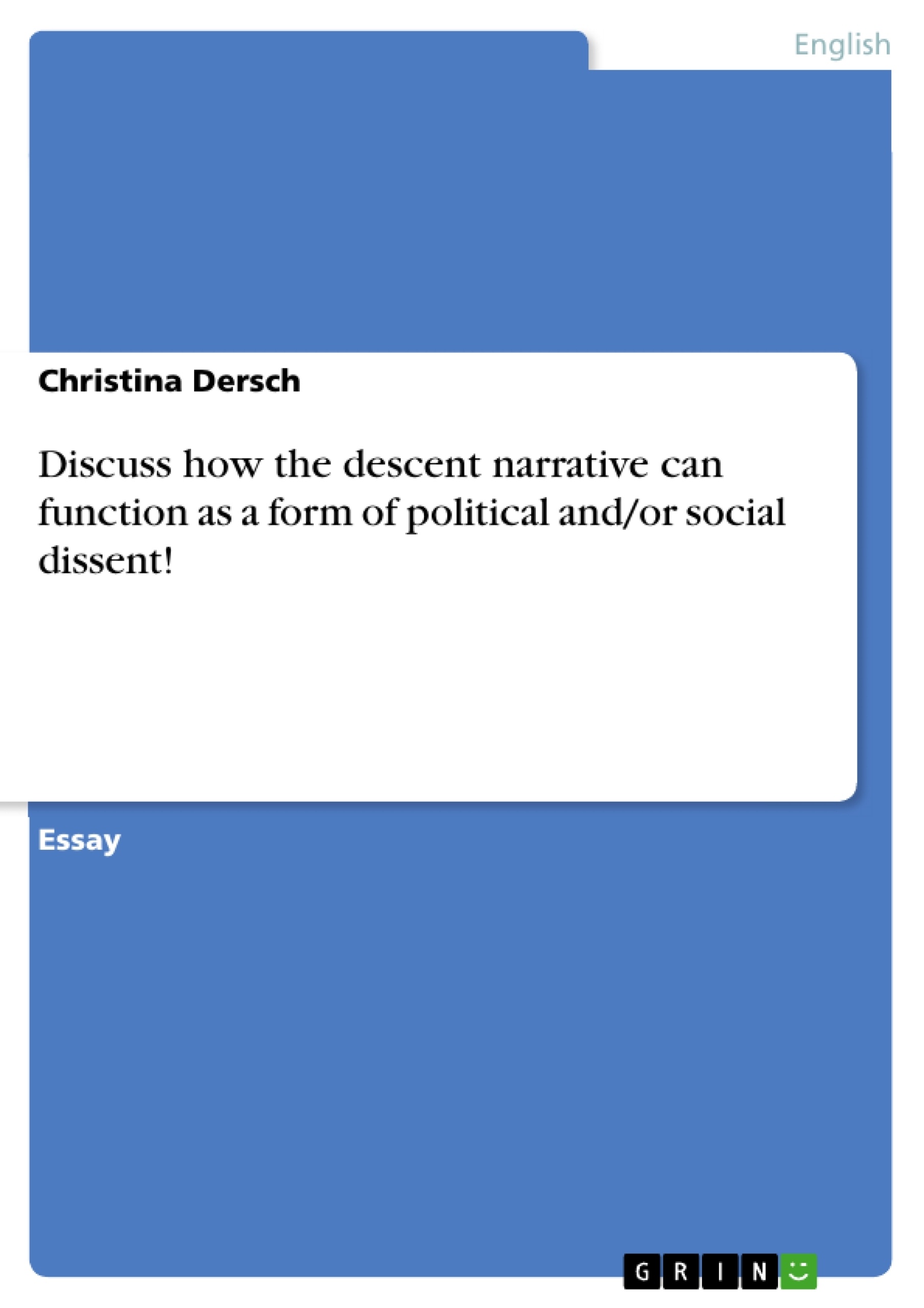During the past century, our ideas and definitions of hell have changed significantly through the experience of two world wars, the far reaching consequences of decolonization, the Holocaust, the split of mentalities into the dichotomy of “East” and “West” as well as most recent threats like diseases, changing moral values and terrorism. These developments make us think about hell in different terms and slowly superimpose classical schemes transmitted via Greek and Roman myths. It is most notably the motif of descent that has altered as death is no more considered the core of the narrative but instead has become an allegory. As Pike points out, `Myth and history are the motor of the descent, but it is driven by the very nature of its narrative structure: to be found in the underworld, a person must be dead.´
Inhaltsverzeichnis (Table of Contents)
- Introduction
- The Modern Western Psyche and the Concept of Hell
- Joseph Conrad's Heart of Darkness
- Language and Reality
- Ambiguity and Oppositions
- Political Aspects and Imperialism
- Heart of Darkness and the Collapse of Values
Zielsetzung und Themenschwerpunkte (Objectives and Key Themes)
This paper examines how 20th-century descent narratives, specifically focusing on Joseph Conrad's Heart of Darkness, function as forms of political and social dissent in response to experiences of societal and personal crises. It analyzes how the traditional descent motif, originating in classical mythology, has been reinterpreted in modern literature to reflect the anxieties and disillusionments of the 20th century.
- The evolution of the descent narrative from classical mythology to modern interpretations.
- The symbolic representation of "hell" as a reflection of societal and personal crises.
- The use of language and communication as a key element in conveying the experience of descent.
- The exploration of political and social dissent within the context of descent narratives.
- The depiction of imperialism and its consequences in Heart of Darkness.
Zusammenfassung der Kapitel (Chapter Summaries)
The introduction establishes the changing understanding of "hell" throughout the 20th century and introduces the concept of the descent narrative as a form of political and social dissent. It discusses the evolution of the descent motif from its classical roots to its modern allegorical interpretations.
The section on Heart of Darkness analyzes Conrad's novel through the lens of descent narrative. It explores how Conrad uses language to create a sense of disorientation and alienation, highlighting the crisis of communication and the breakdown of meaning. The section also examines the theme of ambiguity within the novel, specifically the oppositions between light and darkness, interiors and exteriors. Finally, it delves into the political aspects of the novel, focusing on the critique of imperialism and its devastating consequences.
The final section, before the conclusion (which is excluded here to avoid spoilers), discusses how Heart of Darkness reflects the collapse of European values in the face of colonialism and the loss of faith in traditional societal structures, contrasting it with the thematic concerns in T.S. Eliot's The Waste Land.
Schlüsselwörter (Keywords)
Descent narrative, Hell, Modernism, Heart of Darkness, Joseph Conrad, Imperialism, Colonialism, Language, Communication, Political dissent, Social dissent, Alienation, Ambiguity.
Frequently Asked Questions
What is a "descent narrative" in literature?
It is a literary motif, derived from classical myths, where a character journeys into an underworld or "hell," often representing a psychological or societal crisis.
How does Joseph Conrad's "Heart of Darkness" use the descent motif?
The journey up the Congo River is interpreted as a modern descent into hell, symbolizing the darkness of imperialism and the collapse of Western values.
In what way can a descent narrative function as political dissent?
By portraying the "hell" created by political systems (like colonialism), authors can critique and protest against social and political injustices.
How did the 20th century change the definition of "hell" in literature?
Experiences like the Holocaust, world wars, and decolonization shifted the concept of hell from a mythological place to a man-made, historical reality.
What role does language play in Conrad's Heart of Darkness?
Conrad uses ambiguous and disorienting language to reflect the breakdown of communication and moral meaning in the face of colonial atrocities.
- Quote paper
- Christina Dersch (Author), 2007, Discuss how the descent narrative can function as a form of political and/or social dissent!, Munich, GRIN Verlag, https://www.grin.com/document/122861



